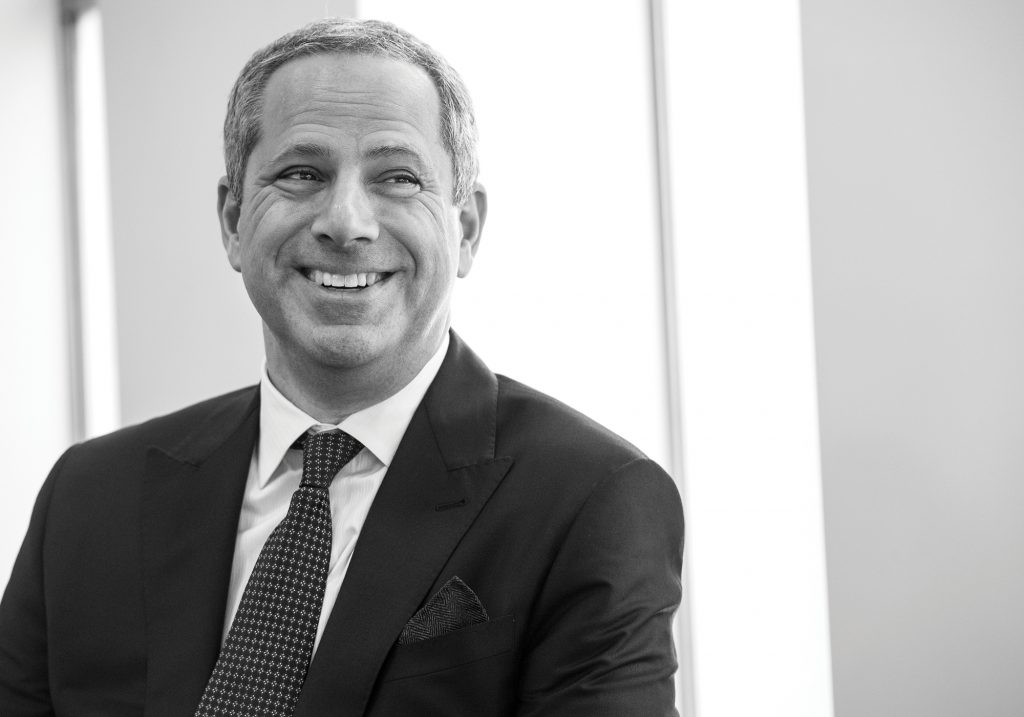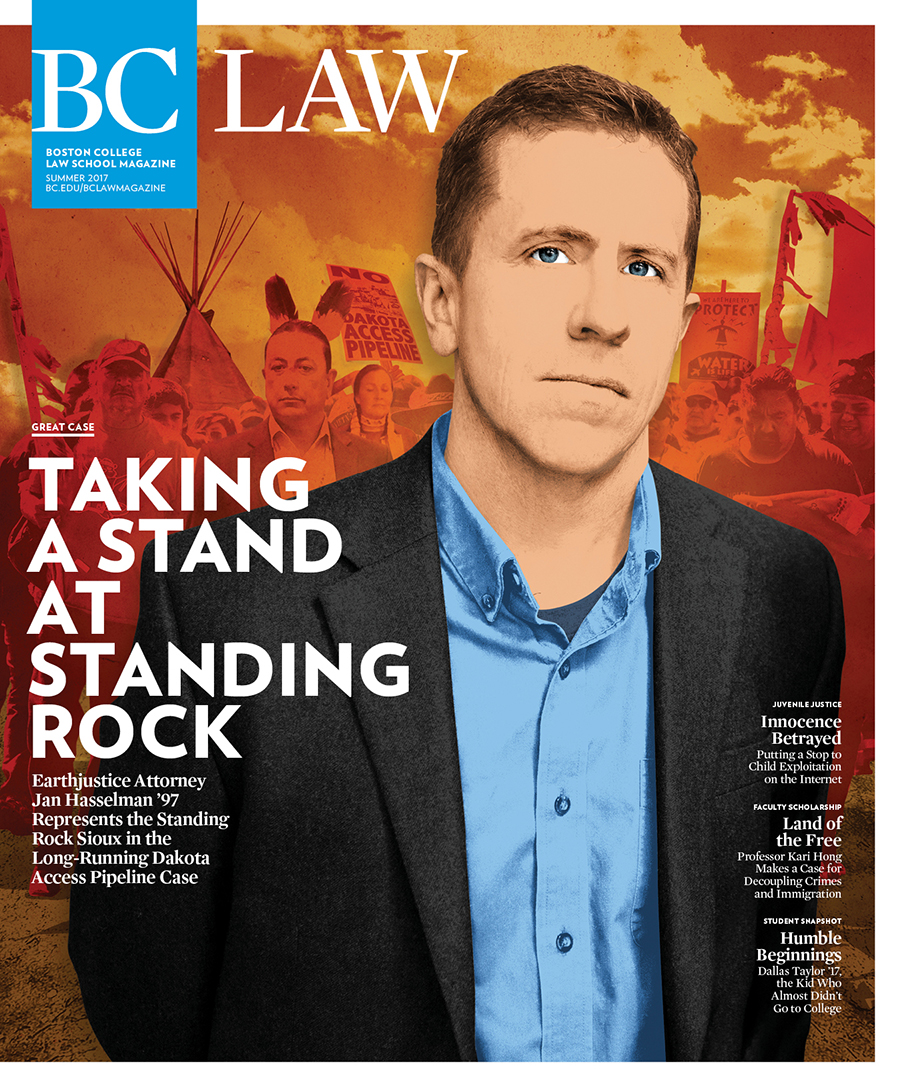These days, he wears Armani suits and subscribes to Women’s Wear Daily, but Hank Rouda ’86 still considers himself “a dirt lawyer by training,” the popular term for the terra firma world of real estate law. Now general counsel and vice-president for legal affairs for Giorgio Armani in New York, Rouda, during a recent career talk to students at BC Law, traced his route via real estate and retail to the world of international high fashion.
Straight out of law school, as a junior associate of a large Chicago law firm, Rouda discovered a talent for real estate. He looks back with pride on a “trial by fire” that involved negotiating with thirty-three separate owners to assemble a parcel for a new suburban office park that still thrives today. “It’s one of the things I like about real estate—I can drive around Chicago and the suburbs and say, I was involved in that project, I did that,” he said.
Perhaps the most high-profile products of a Rouda deal are the huge H&M signs on fashion retailer’s flagship store in Times Square.
Perhaps the most high-profile products of a Rouda deal are the huge H&M signs on the roof of the Swedish fast-fashion retailer’s flagship store in Times Square, at the corner of 42nd Street and 7th Avenue. As general counsel for H&M’s North American operations from 2010 to 2015, Rouda managed lease negotiations. Among the 300 leases he completed, the Times Square deal was the toughest of his career, he said, given the site’s prime location and its attendant security considerations. Now part of the Manhattan skyline, the signs are often featured in movies and TV shows, for which Rouda feels a certain proprietorial pride. “We were watching TV the other day and my wife goes, your signs!” he said, laughing.
Rouda’s move from real estate to retail, and from Chicago to New York, had come earlier, in 1997, when he became director of leasing services for Foot Locker Realty, Inc., the real-estate arm of the sportswear and athletic footwear retailer. He enjoyed the sense of community in the retail world, and being able to identify with a brand he had helped to build. “I like walking around and knowing, this is my company,” he said. “I wouldn’t want to go to a company where I couldn’t feel proud to say, that’s my product.”
When the H&M job opened up, Rouda saw a great opportunity not only to work for the world’s second largest clothing retailer, but also to immerse himself in a corporate culture radically different from anything he’d experienced in US companies. “For the northern Europeans, the collective is more important than the individual,” he said.
This world view shaped corporate practices both superficial and structural, from the absence of job titles on business cards to greater flexibility and internal mobility within the company. “People are not as pigeon-holed as in traditional US organizations,” he found. He also learned to rein in his tendency to sarcasm—“the Swedes don’t get sarcasm”—and to adapt to a slower-paced, more deliberate decision-making process. “If I ran a meeting in an American company the way I do in a Swedish or Italian company,” he said, “the Americans would say, this guy’s killing me! Let’s move!”
Now based at Armani’s offices in Manhattan’s Meatpacking District, Rouda handles all things legal for the company’s operations in the US, Canada, Latin America, and South America, from catering agreements to telecom contracts.
“When you’re part of a big business, you should educate yourself about that business,” he believes. Hence the subscription to Women’s Wear Daily, a growing familiarity with Italian—“you hear it all the time”—and a sharpened sense of the finer distinctions among men in suits. “I can’t tell you that I can spot an Armani suit,” he admitted, “but I can tell you what isn’t.”



